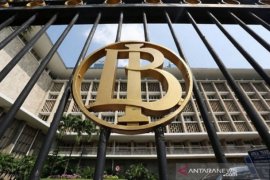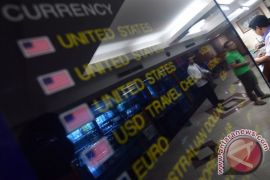"The amount may cover 7.5 months of government imports and short-term foreign debt payments and increase Indonesia`s economic resilience in mitigating various external shocks," Bank Indonesia Governor Darmin Nasution said in a banking annual meeting or Bankers Dinner here Friday night.
Last year`s foreign exchange reserves reached US$96.2 billion with a balance payment surplus of US$30 billion.
Besides, Darmin estimated that in the short term there will be an opportunity to continue economic activities for high economic growth in 2011 reaching 6.0 - 6.5 pct, and increased to 6.1 - 6.6 pct by 2012.
He said investment which started to go up in 2010 may continue to increase to make the economic growth structure to become more balanced.
The higher economic growth in 2011 will also be supported by the solid external performances. Exports will become more diversified and grow while imports will grow in line with increasing investment and consumption.
Darmin said he saw three risks faced in 2010 which remained a challenge in the future, namely risks relating to a global economic imbalance, related to global capital traffic and currency war, and risks related to domestic demands and the pressure of inflation.
He said that two years after the crisis the global economy was proceeding in two different speeds, namely the country`s economic restoration the emerging market far exceeding those of the advanced countries.
Darmin said the difference in economic cycle and the policies between the advanced countries and emerging market had caused the strong flow of capital to the emerging market including Indonesia, which had an effect on appreciation, a risk of asset swelling, and pressure related to reversal capital coupled with the strong throw capital.
Capital response in the form of foreign exchange intervention and capital flow arrangement in a number of emerging market countries caused a different appreciation from one country to another. In the meantime, the costly collection of foreign reserves as the cause of intervention prompted emerging market countries to switch the placement of their foreign exchange to fellow emerging market countries.
Darmin said the improving performance and external resilience becomes part of Indonesia`s achievement which caused the sovereign ratings to increase constantly in the last few months.
"I am optimistic that our economy is constantly heading to an investment grade. Some delays and drawbacks posing an obstacle to entering the zone, especially with regard to improved infrastructure, a homework we need to finish together," he said.(*)
Editor: Aditia Maruli Radja
Copyright © ANTARA 2011






